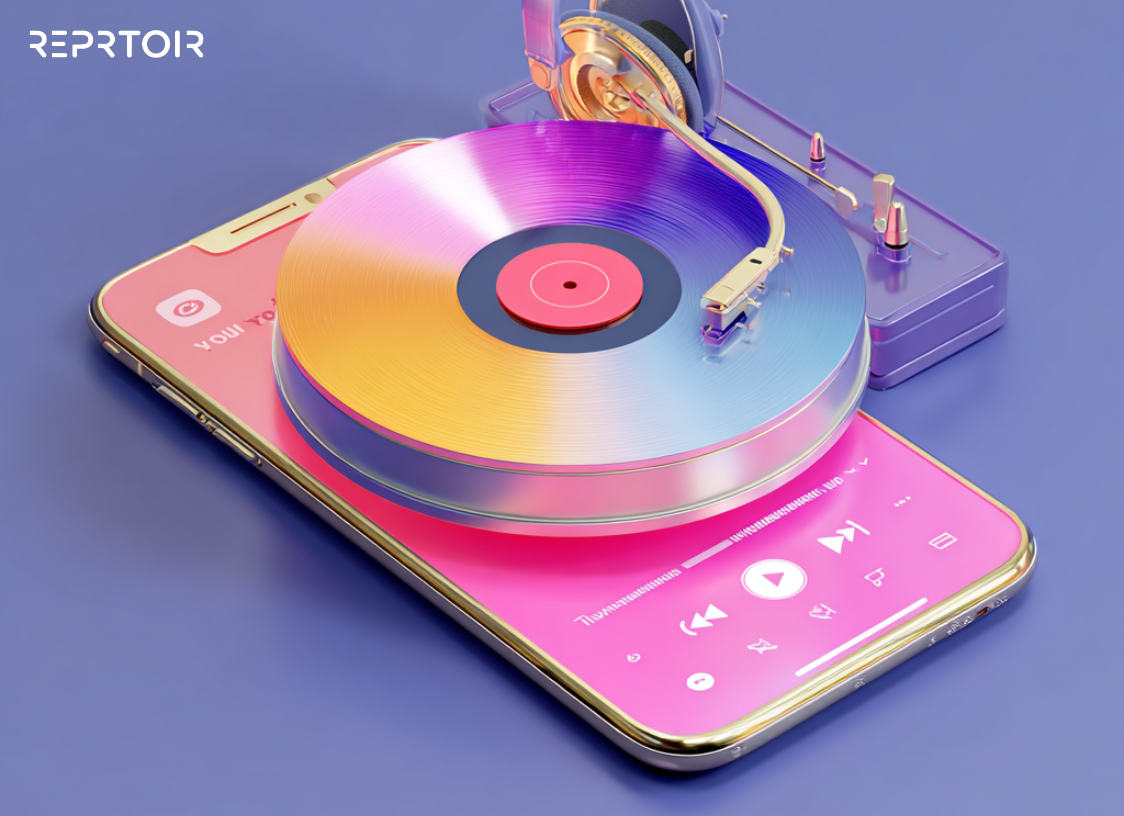Influencing has become a force in the music business for artists and record labels since the advent of social media. It's a dual-sided coin—with influencers using musicians tracks to create trends, whereas artists use their influence to market their music.
This relationship has many opportunities, but it also presents challenges for music businesses. And for record labels and publishers, understanding these dynamics has become critical.
In the United States, 46% of TikTok users listen to music, showing the incredible opportunity of using influencers to promote music.
In this article, we’ll look at two key parts of music influencing: Artists using influencers and artists being the influencers. We’ll also show record labels and publishers can use influencing to develop their artists.
How Influencers Can Help Musicians
Influencers have the power to shape cultural trends and consumer behavior. Via social media platforms—such as TikTok, Instagram, and YouTube—they include music into their content and send tracks to virality.
This comes in many forms, albeit choreographing dances to a catchy beat or using a song for a comedic skit on TikTok. In addition, influencers provide tremendous exposure to eclectic audiences worldwide; this increases streaming numbers and produces fan engagement and loyalty.
However, for artists, navigating the influencer landscape can be daunting—particularly for independent musicians.
Sure, although exposure is invaluable, managing relationships with influencers, negotiating usage rights, and assuring proper attribution can complicate an already pressing workload.
Musicians as Influencers
Artists have embraced the role of influencing in the last decade. After recognizing the power of social media—musicians often leverage platforms, such as TikTok, to grow their fan bases and drive engagement.
They achieve this by sharing behind-the-scenes peeks into their creative process or endorsing products and lifestyle choices.
This approach lets them connect with fans and broaden revenue streams past music sales and touring. For instance, endorsement deals, sponsored content, and brand partnerships offer lucrative opportunities for artists.
Nonetheless, balancing the demands of artistic authenticity with commercialization is a challenge. That’s because maintaining credibility and staying true to their craft amidst the allure of corporate partnerships requires a fragile balancing act.
And that’s something many artists struggle with, which is why the help of record labels and publishers is so important.
The Role of Record Labels and Publishers
For record labels and publishers, understanding influencer dynamics is critical for long-term success. Also, with the right strategy—record labels and publishers can improve the collaboration.
Here’s how:
1. Cooperating with Both Parties
Record labels and publishers play a pivotal role in encouraging collaboration between influencers and musicians. They can bridge the gap between these two parties and create synergistic partnerships.
For instance, labels can organize joint promotional campaigns where influencers feature artists' music in their content, reaching a broader audience while providing exposure for the musician.
Additionally, labels can promote collaborations where musicians create original content or performances for influencers' platforms, enhancing content offerings while showcasing talent.
2. Investing in the Right Artists
Investing in artists who have innate influencer qualities—such as a strong social media presence or unique personal brand—can generate significant returns in terms of audience engagement and marketability.
However, record labels must find the right artists; they can achieve this by attending live events and scouting social media platforms.
3. Offering Support
Record labels can deliver strategic guidance to influencers and musicians to maximize the impact of their collaborations.
This could include advising influencers on how to integrate music into their content in a way that feels authentic and engaging. It could also include helping musicians understand the value of influencer partnerships.
4. Providing Strategic Brand Collaborations
Record labels and publishers can promote strategic collaborations between artists and brands to utilize influencer partnerships.
By aligning artists with brands that share their values—labels can create authentic and impactful collaborations that resound with fans and drive engagement. These collaborations grow the profile of artists and provide valuable exposure.
5. Negotiating Fair Partnerships
Record labels can guarantee that influencer partnerships are structured in a fair and mutually beneficial manner.
This includes negotiating reasonable compensation for musicians whose music is featured in influencer content—as well as establishing guidelines for how the partnership will be monetized.
Furthermore, labels can also negotiate any conflicts or disputes that may arise between influencers and musicians. That ensures both parties are satisfied with their collaboration.
Final Thoughts
Influence has become an integral aspect of the modern music industry; it shapes the strategies of artists, influencers, and record labels alike.
If a music company embraces collaboration, innovation, and strategic thinking—it can use influencing to propel the industry into new opportunities. However, it’s not always that simple: there must be a strategy in place to ensure the partnership works.
At Reprtoir, we have the best tools to grow your music business in 2024. Contact us for more details.










